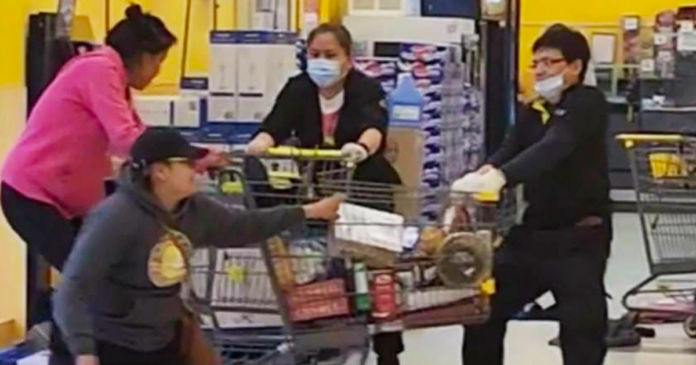There is more than a little truth to the belief that racial profiling in countries like the United States is based on stereotypical assumptions about groups like African-Americans differentiated by race, colour and ethnicity. But it is equally true that certain stereotypes are rooted in the fact that a disproportionate number of crimes are committed by certain racial, colour and ethnic groups.
The same is true In Canada. While representing an estimated 4.9% of the Canadian population, 38% of persons accused of homicide in 2017 were identified by police as Indigenous. The rate of Indigenous people accused of homicide in 2017 was 12 times higher than the rate of non-Indigenous accused. Indigenous adults also are overrepresented in custody and the numbers are increasing.
In 2017/2018, Indigenous adults accounted for 30% of admissions to provincial/territorial custody and 29% of admissions.
What these and other figures show is that crime stereotypes about Indigenous people have a relationship to real behaviour despite the fact the most Aboriginals are peaceful, honest, and law-abiding.
Indigenous criminality, whether based on stereotypes or not, is also geographically centred. As elsewhere in Canada, shoplifting is in runaway mode in downtown Winnipeg, a metropolis with one of the largest per-capita and absolute Indigenous population levels among major Canadian cities.
Rampant inner city shoplifting of alcoholic beverages forced the Manitoba Liquor Control Commission to mandate photo identification and electronic entry at all its Winnipeg outlets two years ago. Many of the city’s supermarkets also employ armed off-duty police officers to protect against the bulk theft of meat and other expensive items.
Though most Indigenous people don’t engage in shoplifting, if those who do resemble their American counterparts, woke Indigenous activists might claim what is usually called “petty theft” is just another legacy of Canada’s Indian Residential Schools just like all other forms of Aboriginal criminality. Those committing such acts may even have been brainwashed to view them as reparations for historical injustices.
A comparison with the United States is not inappropriate. Following the heart-wrenching 2020 killing of George Floyd, riots took place across America.
Hours after a horde of people descended on the Loop in Chicago to pillage expensive handbags, jewelry, clothes and other items from mostly high-end stores, Black Lives Matter (BLM) Chicago held a solidarity rally outside the police station to support those who had been arrested. The small group of demonstrators, mostly African American and white young adults, carried a banner that said, “Our Futures Have Been Looted From Us … LOOT BACK.”
Then Ariel Atkins, a BLM Chicago organizer, spoke.
“I don’t care if somebody decides to loot a Gucci or a Macy’s or a Nike store because that makes sure that person eats. That makes sure that person has clothes. That is reparations. Anything they want to take, take it because these businesses have insurance.”
So does Giant Tiger in Winnipeg, but this is not a rational or moral justification for either looting or shoplifting.
A publicly available video of a shoplifting incident on the evening of Wednesday, May 17, 2023 in a Winnipeg inner-city Giant Tiger store shows what appears to me to be two aggressive female thieves of apparent Indigenous identity along with what look to me like beleaguered South Asian staff.
Though the status of these particular workers is unknown, thousands of retail staff across Canada are employed as temporary foreign workers compelled by their residence status and relative lack of education to toil for a minimum wage in what are becoming increasingly dangerous employment venues.
It needs to be asked why Canada is a magnet for tens of thousands of low-end service workers fleeing poverty, crime, and corruption in dirt-poor countries around the world while the urban and on-reserve unemployment levels among our Indigenous people — mostly able-bodied individuals supplied from cradle to grave with all manner of free public and private support and differential privileges in one of the richest countries in the world — are sky high.
My straightforward answer is that learned helplessness and other heart-breaking adversities and pathologies so prevalent among indigenous people — criminality, violence, sexual abuse, alcoholism, other drug addictions, unwed teenage pregnancy, poor school achievement, etc. — are the legacy not of colonialism, let alone the Indian Residential Schools, but of the generations of dependency and its resultant infantilization of supposedly mature adults.
The video was uploaded to Facebook on Wednesday, May 17. It shows Giant Tiger staff members struggling against two women trying to leave the store with a loaded cart. The staff can be seen pulling on one end of the cart, while the women are wrenching on the other.
“I’ve never seen anything like that in my life. I just walked in the door and heard somebody swearing… I saw carts banging, and I decided to pull out my phone and start recording it,” said the woman who filmed the incident but asked the Winnipeg Free Press to withhold her full name.
One of the two staff members then released the cart after one of the women threw a large, framed picture at him. The women then lackadaisically left the store with their bounty.

The amount of resistance shown suggests to me an entitlement to seize these goods. This may be because Aboriginals have long been indoctrinated by their leaders and other advocates to believe that all of Canada, every square inch, belongs to their people. If these women believed this to be true, they could also believe they were simply taking property that rightfully belonged to them.
My hypothesis may be dead wrong and these two unnamed women, regardless of their ethnicity, may simply have been motivated by the same urges as any other shoplifter: greed and/or economic desperation.
Still, the state of current privilege-based Indigenous ideology and behaviour in our deeply polarized nation means that as in America, racial stereotypes or not, aggressive crimes like these are only bound to increase.





















